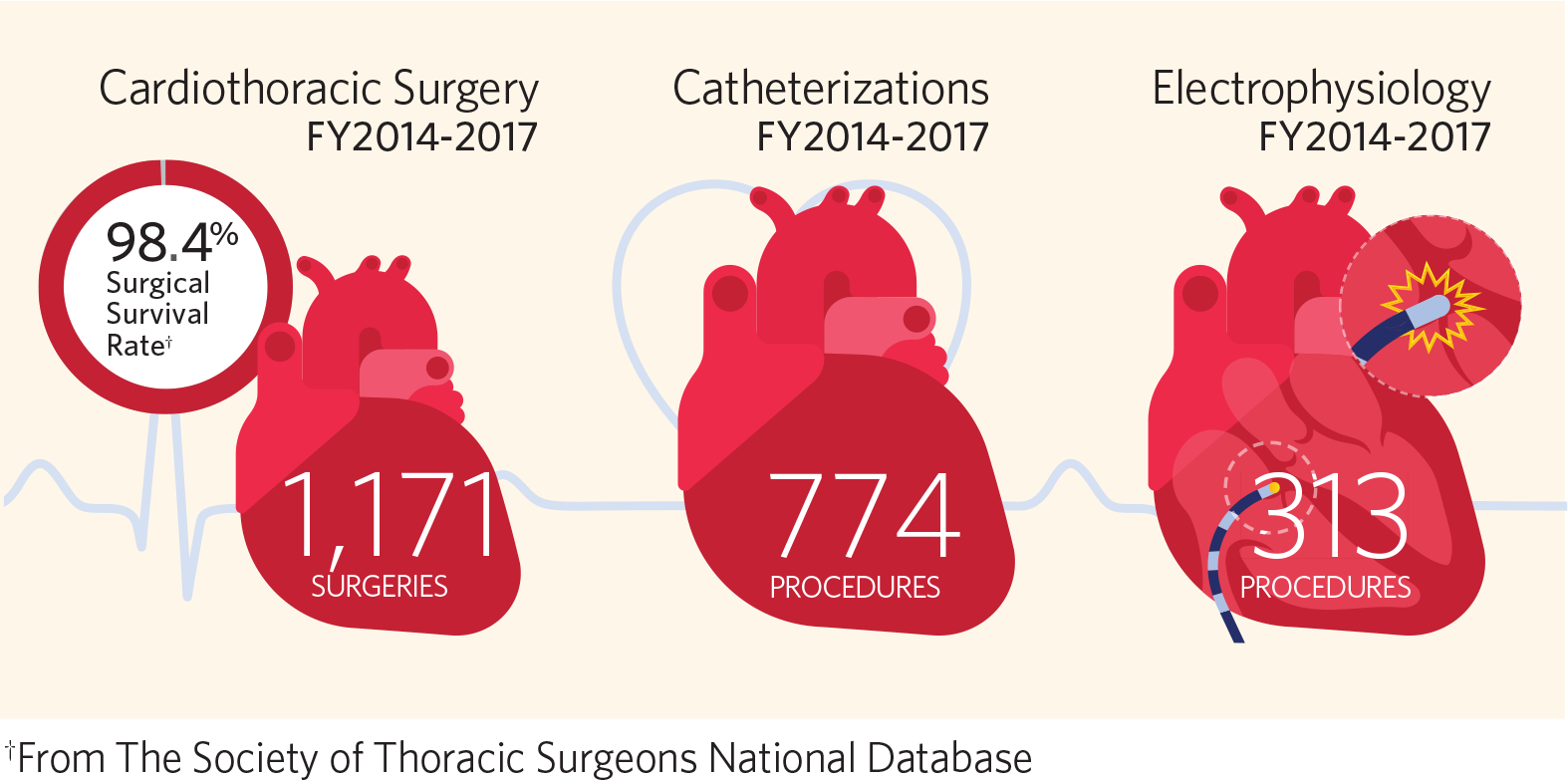Electrophysiology
Volumes & Outcomes
The Congenital Heart Center is committed to providing the highest standard of care to help individuals live longer, healthier lives.

Arrhythmia is an abnormal rhythm of the heart, either too rapid (tachycardia) or slow (bradycardia). Problems with heart rhythm can also cause the heart to pump less effectively. Certain arrhythmias can increase the risk of other medical problems like stroke or blood clots.
Arrhythmias can be an important problem in children and adults with congenital heart disease. Signs of arrhythmia include rapid heartbeat, dizziness and fainting.
Types of Arrhythmias
There are different types of arrhythmia, including:
- Wolff-Parkinson-White Syndrome
- Tachycardia
- Supraventricular tachychardia
- Ventricular tachychardia
- Premature contractions
- Premature ventricular contractions (PVC)
- Premature atrial contractions (PAC)
- Atrial flutter
- Atrial fibrillation
Expert Care
The Congenital Heart Center’s fellowship-trained pediatric electrophysiologist helps manage arrhythmias in children, young adults, as well as adults with congenital heart disease. When a child has a complex arrhythmia in association with a congenital heart defect, our electrophysiologist works together with pediatric interventional cardiology to provide the most appropriate and advanced treatment.
We use state-of-the-art technology that is specially geared toward children, including catheter ablations using 3-D mapping with minimal fluoroscopy, to decrease a child's exposure to radiation.
Find a Congenital Electrophysiologist
Our experienced pediatric doctors and specialists are ready to serve you and your family.
Services We Offer
Our expert electrophysiology services include:
- Workup for arrhythmia symptoms including palpitations and syncope
- Screening for prevention of sudden cardiac arrest in high-risk patients
- Management of children and adults with congenital heart disease with arrhythmias
- Evaluation and follow-up of patients with genetic arrhythmia syndromes, as well as those with pacemakers or defibrillators, including remote transmissions
Testing & Procedures
Testing and procedures we offer:
- Holter monitor
- Event monitor
- Tilt table test
- Implantable loop monitor placement
- Electrophysiology studies
- Catheter ablations using 3-D mapping with minimal fluoroscopy
- Pacemaker and defibrillator implantation
- Testing for genetic arrhythmia syndromes


